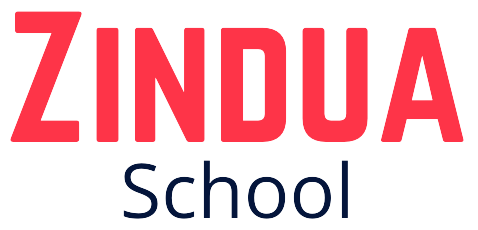Unlock Your Learning Journey: 9 Key Differences between Bootcamps vs University vs Self-Learning—Discover Your Path to Success
Have you ever wondered about the best way to acquire new skills and knowledge? With options like bootcamps, university education, and self-learning, choosing the right path can be a daunting task. Each approach offers unique advantages and considerations, catering to different learning styles and goals. Let’s explore the differences between bootcamps, university education, and self-learning to help you make an informed decision about your educational journey.
Bootcamps
Alright, picture this: you’re eager to dive headfirst into a new career in tech or digital marketing. Bootcamps might just be your ticket! These bad boys are all about fast-paced, hands-on learning. According to Wikipedia, they’re like crash courses on steroids, designed to get you job-ready in a matter of weeks or months.
Zindua School, for example, offers a comprehensive boot camp experience where you can kickstart your learning journey. Here’s what you need to know:
- Accelerated learning: Bootcamps are designed to equip learners with in-demand skills in a short period, making them ideal for individuals looking to enter the workforce quickly or transition into a new career.
- Industry relevance: Bootcamps often collaborate closely with industry partners to ensure their curriculum is up-to-date and aligned with current industry standards and trends.
- High intensity: Bootcamps require full-time commitment and intense focus, making them suitable for individuals who thrive in immersive learning environments.
University
Ah, the hallowed halls of academia! If you’re craving a deep dive into a subject and a shiny degree to show for it, traditional university education might be more your speed. Here’s the lowdown:
- Academic rigor: University programs often emphasize theoretical knowledge, critical thinking, and research skills, providing a well-rounded education that extends beyond practical skills.
- Credential value: Let’s face it – a degree from a reputable university still holds serious clout in the job market. It’s like a golden ticket to career opportunities.
- Network, Network, Network: Universities are buzzing hubs of activity, brimming with opportunities to network with fellow students, professors, and industry insiders.
Self-Learning
Feeling a bit rebellious? Self-learning might be right up your alley! This DIY approach gives you the freedom to chart your own course and learn on your own terms. Here’s what you need to know:
- Freedom to Explore: With self-learning, the world is your oyster! You get to pick and choose what you want to learn, when you want to learn it, and how you want to learn it.
- Resourcefulness: Self-learners utilize a wide range of resources, such as online courses, tutorials, books, and practical projects, to acquire knowledge and skills.
- Self-discipline: Let’s not beat around the bush; self-learning requires serious self-discipline and motivation. There are no deadlines or grades to keep you in check, so you’ve got to be your own cheerleader.
Differences
Let’s break down these options in a friendly manner:
| Aspect | Bootcamp | University Education | Self-Learning |
|---|---|---|---|
| Learning Format | Intensive, hands-on | Comprehensive, theoretical | Flexible, self-directed |
| Time Commitment | Short-term (weeks-months) | Long-term (years) | Variable (self-paced) |
| Focus | Industry-specific skills | Broad academic knowledge | Personalized interests |
| Structure | Structured curriculum | Formal degree programs | Self-designed learning path |
| Instruction | Instructors/mentors | Professors/lecturers | Self-guided with online resources |
| Accountability | Full-time commitment | Academic schedules and deadlines | Self-discipline and motivation |
| Cost | Variable (often high) | High (tuition, fees) | Variable (depends on resources) |
| Credential Value | Industry recognition | Formal degrees | Skill proficiency |
| Career Impact | Quick entry into workforce | Broad career opportunities | Skill-based advancement |
Conclusion
So, which path will you choose? The choice between bootcamps, university education, and self-learning depends on various factors, including your career goals, learning style, time constraints, and financial resources. Ultimately, the best approach is the one that aligns with your individual goals, preferences, and circumstances, helping you embark on a fulfilling learning journey and achieve your desired career outcomes.
Are you interested in joining tech? Zindua School is a coding school that offers virtual part-time programs in Data Science and Software Development to students in emerging economies. Zindua is categorically known for its one-on-one technical mentorship model where students are given personalized support by experts throughout the program. Apply here to join the next intake!







